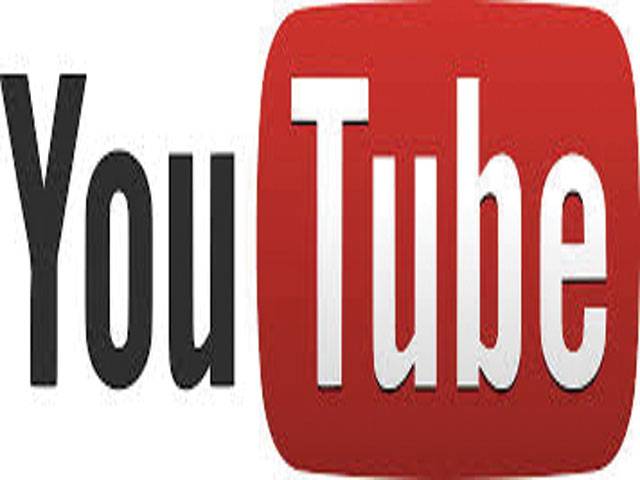LAHORE - YouTube issued a statement on the query of The Nation which offers a concrete onetime solution to the ongoing YouTube blockage. The solution potentially jeopardizes the ‘hidden’ formula that the Ministry of Information Technology claims to have come up with to unblock YouTube.
YouTube spokesman in a special statement to The Nation said that the best solution of handling YouTube affairs is to have a ‘localised’ YouTube. This would not only give relevant content to users but also would bring YouTube under the legal frame work of the country. YouTube would be bound to abide by local laws adding that any notified video would be restricted in the respective country after thorough view.
The statement says, "We offer a localized version of YouTube in 56 countries around the world. In each localized country (e.g. in Indonesia through www.youtube.co.id), we offer local content that is more relevant to users in that country, and we also abide by that country's laws. When we are notified that a video is illegal, we will restrict access to it in that country after a thorough review.
In countries where we are not localized, like Pakistan, people access the global version of YouTube on youtube.com. It is Google’s goal to offer local versions of YouTube to more places worldwide, but it takes time. The localization process can be lengthy as we research laws and build relationships with local content creators. Eventually, we hope to be localized everywhere regulation permits."
According to Google Transparency report, YouTube had received inquiries from many countries (in early September 2012) regarding YouTube video made by Christian extremists which flared up the Muslim community around the world. The countries include Australia, Bangladesh, Brazil, Brunei, Djibouti, Egypt, India, Indonesia, Iran, Jordan, Lebanon, Malaysia, Maldives, Pakistan, Russia, Saudi Arabia, Singapore, Turkey, United Arab Emirates, and the United States. However, Australia, Egypt, and the United States requested YouTube to review the video while 17 other countries requested to remove the video. Google Transparency report says that YouTube has restricted videos in Indonesia, India, Jordan, Malaysia, Russia, Saudi Arabia, Singapore and Turkey.
This does not seem as messy as it got. A test case in this scenario might be of Turkey, which not only unblocked YouTube in the country but framed YouTube under local law, with the same mechanism offered to Pakistan.
Meanwhile, Anusha Rehman, who has gone very passive after taking oath as Minister of IT(also deactivating her Twitter account), said in a press conference on 22nd August, that the MOIT has finally came up with a ‘formula’ of unblocking YouTube. She said that the information technology ministry had prepared a proposal in this regard that would be presented to an inter-ministerial committee to approve. In the same press meeting she said that a hefty amount Rs270 crore would be spent by the MOIT to unblock Youtube and manage grey traffic, this raised many questions amongst IT experts.
It has been observed by The Nation that a strong sense of secrecy is being maintained by the ministry as no official is ready to talk, especially after the haphazard press conference done by the minister herself on 22nd August.
Despite repetitive attempts Anusha Rehman, secretary MOIT, and other focal persons were not available to elaborate the ‘formula’ that the ministry has made to unblock YouTube, neither, any breakage of Rs270 crore were provided to The Nation in this regard. IT experts say that spending Rs270 crore is not justifiable in any way what so ever, and some even sense this as a scam watching closely for latest developments in this regard.
In some countries YouTube is completely blocked, either through a long term standing ban or for more limited periods of time such as during periods of unrest, the run-up to an election, or in response to upcoming political anniversaries. In other countries access to the website as a whole remains open, but access to specific videos is blocked. In cases where the entire site is banned due to one particular video, YouTube will often agree to remove or limit access to that video in order to restore service.
As of September 2012, countries with standing national bans on YouTube include China, Iran, Pakistan, and Turkmenistan. YouTube is also mostly blocked in Germany from YouTube's side due to disputes over royalties.
YouTube's Terms of Service prohibit the posting of videos which violate copyrights or depict pornography, illegal acts, gratuitous violence, or hate speech. User-posted videos that violate such terms may be removed and replaced with a message stating: "This video is no longer available because its content violated YouTube's Terms of Service".
Thursday, April 18, 2024
Localised version best solution, says youtube spokesperson

IHC restores Bushra Bibi's appeal for shifting to Adiala Jail from Bani Gala
1:24 PM | April 18, 2024
Punjab CM taking steps for public welfare: Ex-minister
April 18, 2024
54 students of NUML visit Parliament House
April 18, 2024
Aleem Khan stresses to double NHA’s revenue
April 18, 2024
AGP report discloses irregularities in BRT project
April 18, 2024
Hepatitis Challenge
April 18, 2024
IMF Predictions
April 18, 2024
Wheat War
April 18, 2024
Rail Revival
April 17, 2024
Addressing Climate Change
April 17, 2024
Justice denied
April 18, 2024
AI dilemmas unveiled
April 18, 2024
Tax tangle
April 18, 2024
Workforce inequality
April 17, 2024
New partnerships
April 17, 2024
ePaper - Nawaiwaqt
Advertisement
Nawaiwaqt Group | Copyright © 2024





